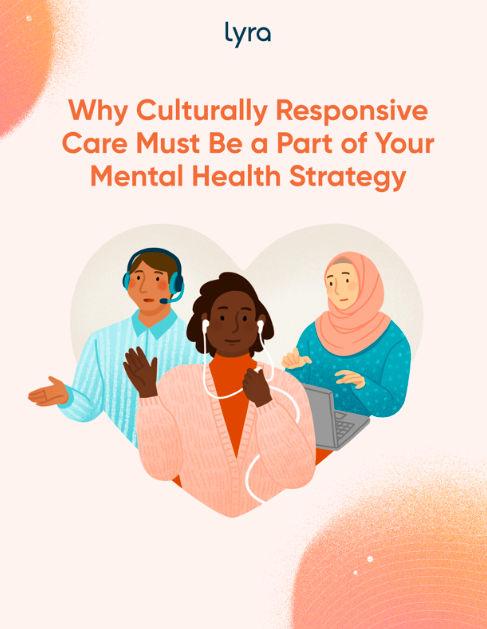
Why culturally responsive care must be part of your mental health strategy

Many mental health providers fail to provide care that responds to their clients’ cultural backgrounds. As the workforce rapidly diversifies, it’s vital to not only create a diversity, equity, inclusion, and belonging (DEIB) strategy for recruitment, but also to invest in a mental health benefit that provides culturally responsive, evidence-based care.
In this guide, discover:
- What culturally responsive care means
- How differing cultural experiences can impact people’s perceptions and how they respond to stress
- Why comprehensive inclusivity is such a crucial part of your DEIB strategy